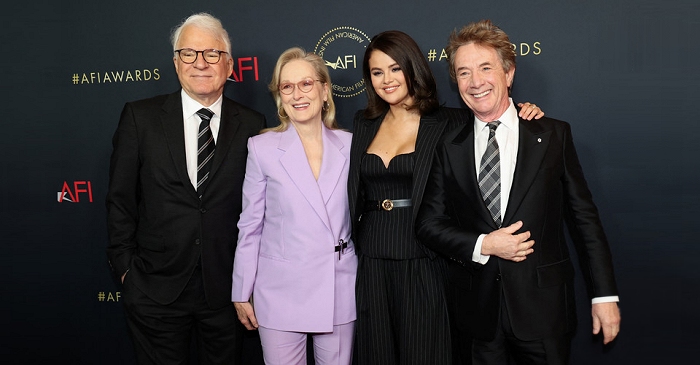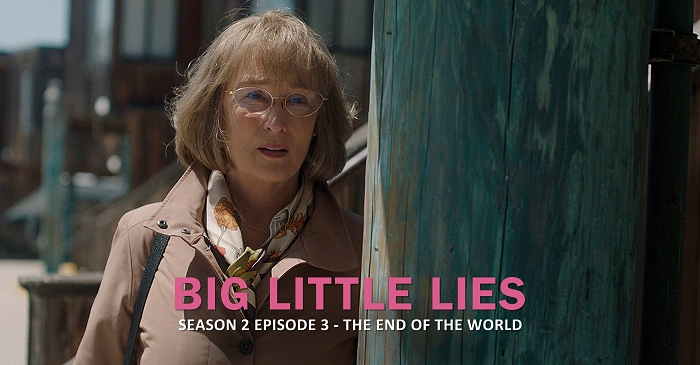|
Simply Streep is your premiere source on Meryl Streep's work on film, television and in the theatre - a career that has won her the praise to be one of the world's greatest working actresses. Created in 1999, we have built an extensive collection to discover Miss Streep's body of work through articles, photos and videos. Enjoy your stay.
|
Celebrating
25 years
of SimplyStreep
|

We conclude our weekly series on Meryl Streep’s films of the 1990s, which started 12 weeks ago and was originally designed with the thought that our lives would have been back to normal 3 months later. Unfortunately this is not yet the case. To all visitors, readers and friends, stay healthy and strong. And enjoy a Saturday dose of “Music of the Heart” if your’e strong enough :-)
The combination of Wes Craven and Meryl Streep in the late 1990s seemed like the most far-fetched idea Hollywood could offer around that time. After all, Craven had single handedly revived the slasher genre with „Scream“, the following films in the franchise and countless knock-offs of who did what when during Summer vacation. Of course, Craven wasn’t new to the genre – he created „A Nightmare on Elm Street“ in 1984, significantly mixed horror cliches with humor and satire and became the „Master of Horror“ for legions of fans. So, what could he possibly be filming with Meryl Streep, if it wasn’t a part of Ghostface’s crazy mother? The story behind the making of „Music of the Heart“ is a prime example to never judge a book by its cover, nevermind how bloody or gory it may be.
“Music of the Heart” tells the story of real-life teacher Roberta Guaspari as she rebounds from a painful divorce and moves to New York with her two sons to start what’s become the hugely popular East Harlem Violin Program. “I wouldn’t have the ability to play the violin. I never would have even thought about it without the gift of that program,” she said during a interview with the Los Angeles Times prior to the film’s release. „“The only reason that I’ve fought so hard through the years is that I love teaching, and I don’t want to stop. The only thing that’s changed in my life now is that I’ve got 10 more things to do all the time.” Guaspari hesitated when Miramax Co-Chairman Harvey Weinstein asked to do a feature based on her life, and then told her that a man known for horror films would direct the project. “I was really frightened, to be quite honest. It was like selling myself to have to put my life up on the screen. All of my friends and family said, ‘No, don’t let them do it,’ ” Guaspari says. But she is satisfied that Weinstein and Craven kept their promise to take care of her story, though it is one that presents a slightly warmer classroom atmosphere than the more disciplined learning environment favored by the real-life instructor.
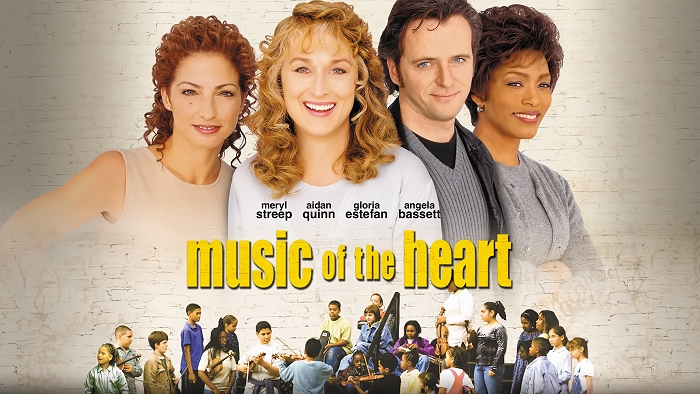
Wes Craven discussed this unusual break between „Scream 2“ and „Scream 3“ during a 2014 interview, saying that the success of the first „Scream“ led to a three-picture deal with Miramax, including one film that he could handpick. He chose „Music of the Heart“, which was initially titled „50 Violins“. “It just appealed to so many things,” Craven recalls in the interview. “I’d been a teacher. I’d been divorced. I’d lived in New York and loved New York. I love all sorts of music, including classical music. It was a great story, and I thought I could get an actress who was top-notch.” Craven’s interviewer, Mick Garris, jokes that he had to settle for Meryl Streep. That’s true. The actress initially attached to the role was Madonna, who had studied the violin for months in preparation for the role but ultimately bowed out. (According to a 1998 Variety article, she and Craven disagreed over how the lead character would be portrayed.) The film would have been Madonna’s first starring role after Evita. In the end, Craven himself convinced Streep to play the part. “I had to have a very long, very erudite conversation with Meryl before she’d consider doing [Music of the Heart],” Craven said. “On the set the first day I met her, she said, ‘We live in a house in Connecticut, down at the end of this long road, in the middle of the woods, and my daughters watched Scream on our television set, and they were terrified to sleep in the house after that.’ I got busted by her right away.”
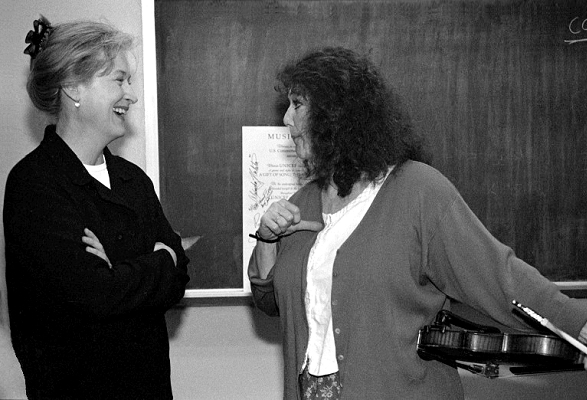
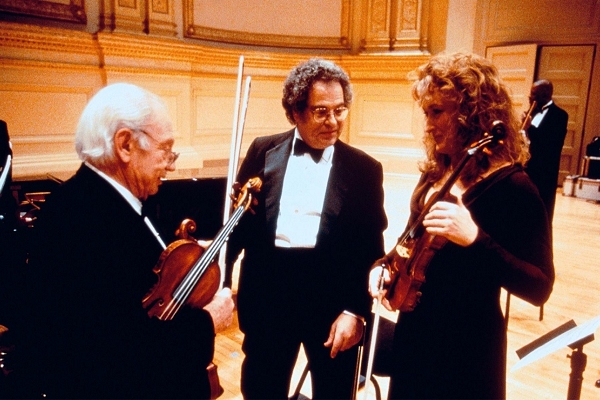
Replacing Madonna so far into the production must have been some kind of bittersweet irony for Streep, who spent years in the 1980s preparing to play „Evita“ under Oliver Stone’s direction, only to see the project fall apart and being picked up years later with Madonna in the lead. Streep remembered Craven’s approach in an interview with People Magazine: „Craven wrote her an emotional plea to reconsider. ”Never in my life had I gotten a letter like this from a director,” she says. ”He told me, ‘I’ve waited 20 years to tell a story like this,’ and I was seduced by his passion.” But Streep still needed more time to learn the violin, so Craven begged Miramax head Harvey Weinstein for the money necessary to keep the entire crew on hold for an extra month, while Streep practiced, practiced, practiced. ”I needed the time, or else I would’ve felt like I was doing a half-assed job,” she says. To portray Roberta Guaspari, a real-life music teacher in East Harlem, N.Y., Streep studied the fancy fiddle four to six hours a day for two months before shooting began. With New York Philharmonic violinist Sandy Park as her instructor, Streep learned all of the pieces Guaspari teaches her public-school kids.
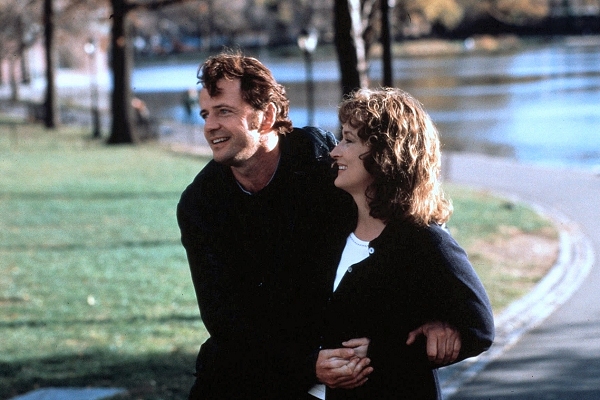
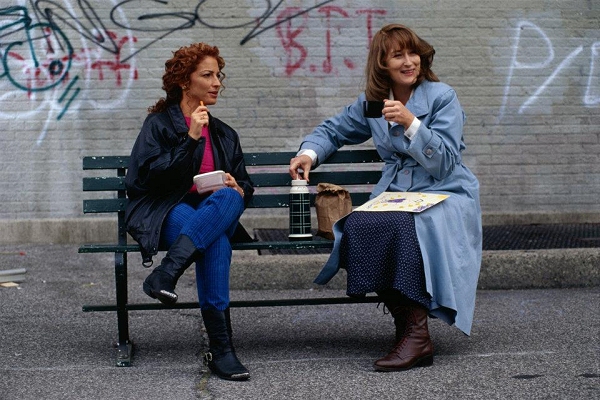
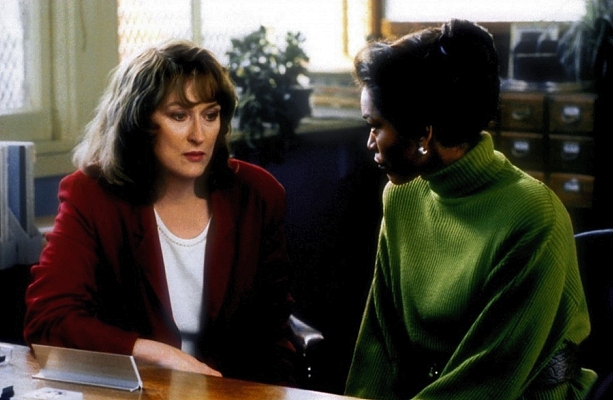
But, as the People article continues, Streep got so nervous about playing correctly that she kept forgetting her lines: ”I would come on set, and I had practiced the chords like 15 times, and then I’d go ‘Oh, s—, what are the words?”’ Streep recalls. ”The script supervisor got so used to me, she always had the script open to my parts.” That the perfectionist Streep even took the part was a minor miracle. When Madonna bailed on the project, director Wes Craven begged Streep to step in, but she declined. ”They were only going to give me a month to prepare, and I said, ‘You’ve got me mixed up with somebody, I don’t know how to do this at all, I can barely read music,”’ Streep says. The hardest piece Streep had to master was Bach’s Concerto in D, which she plays at the end of the film along with 11 international virtuosos — including Isaac Stern, Itzhak Perlman, and Joshua Bell — at Carnegie Hall. Right before the scene was shot, Stern put her on the spot. ”He asked, ‘Can you play the Bach double?’ And I said, ‘Yes I can.’ So he made me come into the maestro suite and play it for him at that moment,” she says. Turns out, the nerve-racking test was just what Streep needed: ”When I walked out on the stage, I wasn’t scared, which is good, because there were 2000 extras in the audience. I was scared s—less in that room with him, but he delivered me into the scene.”
„Music of the Heart“, in the grand tradition of most of Streep’s mid-to-late 90s films, was met with positive reviews, awards buzz, and almost zero feedback from the box office. Streep scored another trio of nominations for the Golden Globe, Screen Actors Guild Award and Academy Award, but lost to either Hilary Swank for „Boys Don’t Cry“ and Annette Bening for „American Beauty. After „Music of the Heart“, Streep „retired“ from film acting for the next three years, for personal reasons, returning in 2002 with the much-lauded hits „Adaptation“ and „The Hours“ – the two films that revived her career in a big way and set the path to the Golden Age of Streep for the next 20 years.
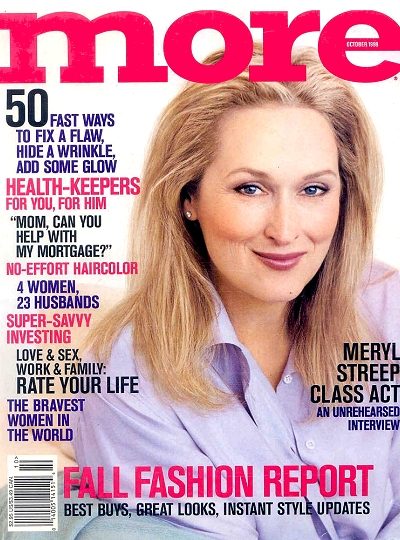
More Magazine
October 1999
|
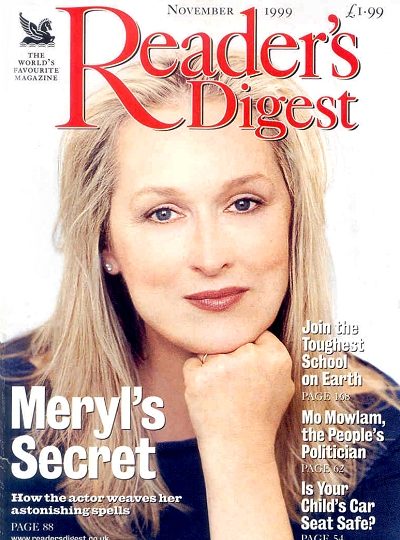
Reader’s Digest
November 1999
|
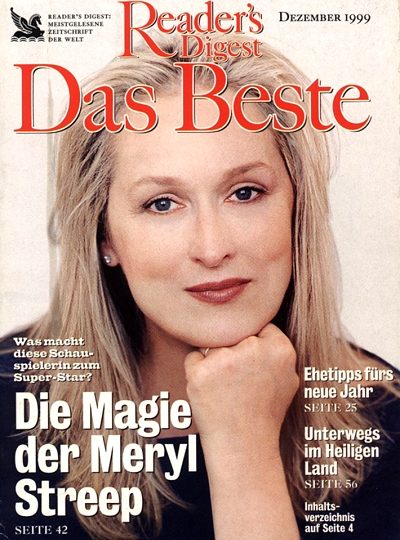
Das Beste
December 1999
|
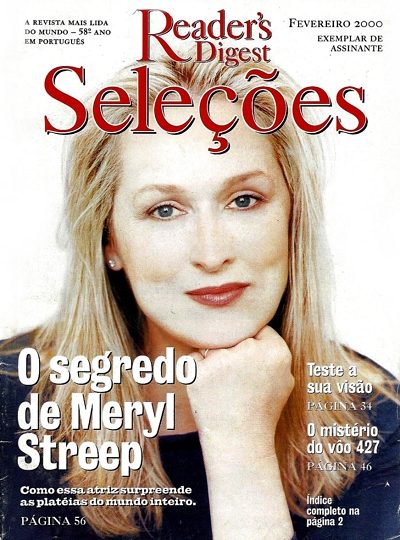
Selecoes
February 2000
|

